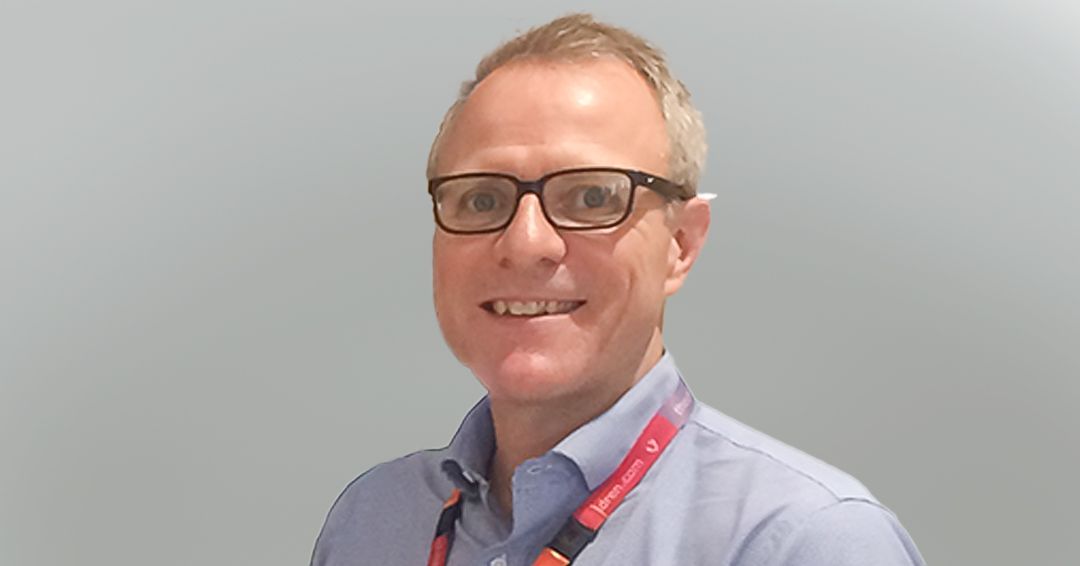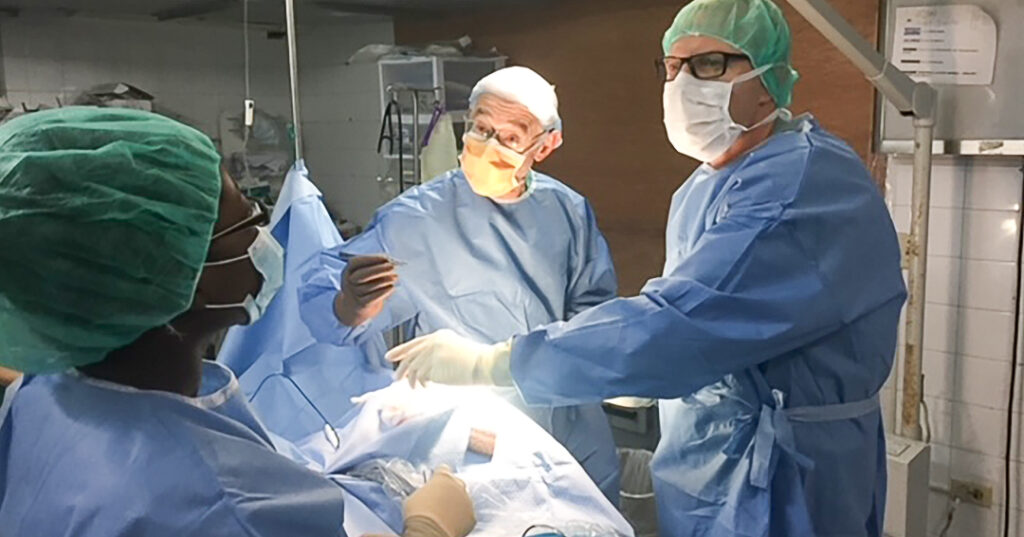
Part of our series: FMHS community members from away – The Faculty of Medicine and Health Sciences (FMHS) is made up of diverse communities, including people from across Canada and around the world. This series recognizes those from outside the province who have chosen to bring their talents and expertise to McGill University. Thank you for all that you contribute!
Last December, Roy Dudley, MD, PhD, a pediatric neurosurgeon at the Montreal Children’s Hospital, backed physicians at Montreal’s Centre Hospitalier Universitaire Sainte-Justine in their first robotic-assisted stereoelectroencephalography, where multi-lead depth electrodes were placed into regions of an epilepsy patient’s brain, to identify seizure onset zones. The information gathered from the procedure was crucial in determining the appropriate treatment – in this case, surgery.
“In this particular patient, we connected 12 electrodes to see where the seizures are coming from,” Dr. Dudley said. “We drill through the skull with a tiny drill. The electrodes themselves are 0.8 of a millimeter. And we put these electrodes in and then we record the patient, and when we think we have enough information, we take the electrodes out. The team found where the seizures were coming from, enabling the patient to be scheduled for surgery.”
Dr. Dudley, who hails from St. John’s, Newfoundland, started his career as a researcher for Natural Resources Canada back home on The Rock. He obtained his master’s degree at McGill University’s Macdonald campus, studying molecular biology and genome mapping. He completed his PhD at McGill’s Division of Experimental Medicine, and returned to Newfoundland’s Memorial University to study medicine, followed by a neurosurgery residency at The Neuro, and a pediatric neurosurgery fellowship at the University of Colorado in Denver. He is now an assistant professor in McGill’s Departments of Pediatric Surgery and Neurology and Neurosurgery.
“I thought I was going to be a pediatric neurologist, not a neurosurgeon, because of my research in muscular dystrophy and my PhD,” Dr. Dudley noted. “But I’d been doing animal surgeries and when I went to medical school, I realized I’m more of a surgical person. As a neurosurgeon, I like pediatric neurosurgery where we do a bit of everything. I like working with children and interacting with their families. Currently, the department is having really good outcomes with pediatric epilepsy surgery, around 80% seizure freedom, but I want to push that closer to 100%. That’s one of my main goals in epilepsy surgery research.”
Dr. Dudley’s surgical expertise took him to Haiti in 2014 and 2016 to treat young children with hydrocephalus, a neurological disorder caused by an abnormal buildup of cerebrospinal fluid in the ventricles (cavities) deep within the brain. This excess fluid causes the ventricles to widen, putting harmful pressure on the brain’s tissues. “I wanted to be able to use my neurosurgical skills in this underprivileged community and be able to help. I was also interested in learning endoscopic third ventriculostomy and choroid plexus cauterization. We would get there the first day and mothers would be waiting with their babies. We’d carry out ultrasounds and measure the head’s circumference, and we’d get a little bit of history. There were two operating rooms and we’d do five cases in each room, so we did 10 cases a day for the better part of three days. The following morning, we would round on the patients to make sure they were all doing well.”
Dr. Dudley’s knowledge of the French language was vital during these visits, allowing him to communicate with both parents and hospital staff. “I was one of the few people who could speak French, so that was an asset. If I hadn’t been working in Quebec all these years, I wouldn’t have been as useful there.”
Dr. Dudley says his work with Centre Hospitalier Universitaire Sainte-Justine and in Haiti has shown the advantages of working and living in two languages. “It’s professionally beneficial and socially integral. In the long term, I see myself staying in Quebec. I met my wife here and my children were born here. I wouldn’t want to live anywhere else.”

